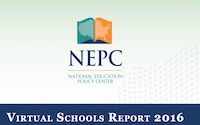
The Factor-Criteria Model Of Assessment Of Electronic Educational Game Resources In Mathematics For Primary School Students
This article proves the need for a comprehensive assessment of electronic educational game resources in mathematics for the primary school students; gives the definition of “the factor-criteria model of the electronic educational game resources (EEGR)”. It also describes the created model, which consists of requirements for the content, methodological and program parts of the electronic […]














